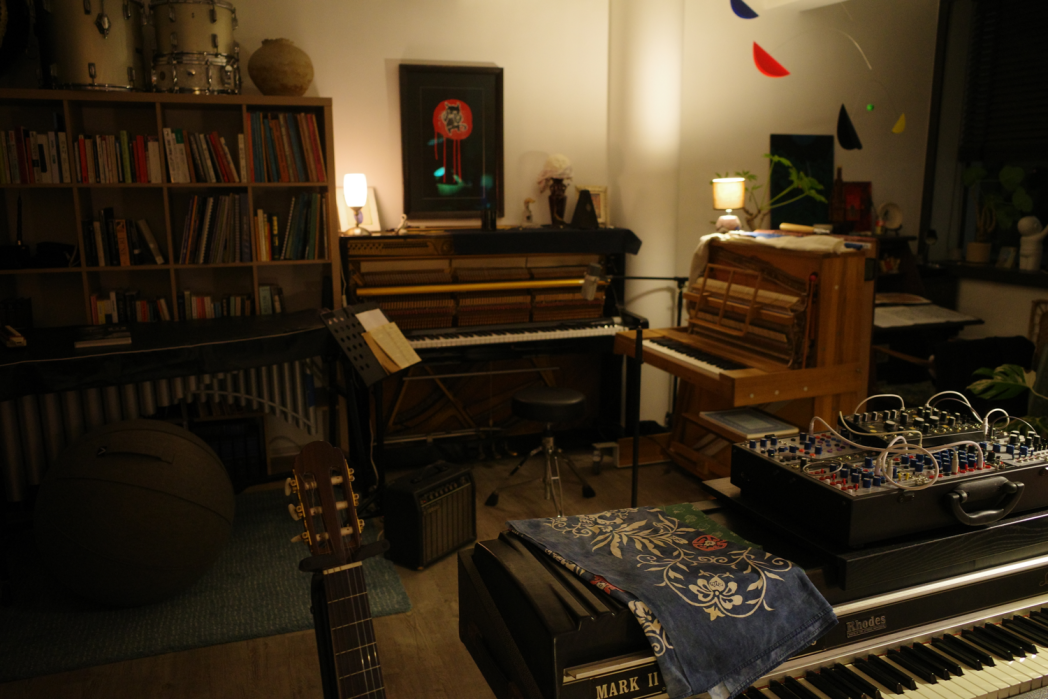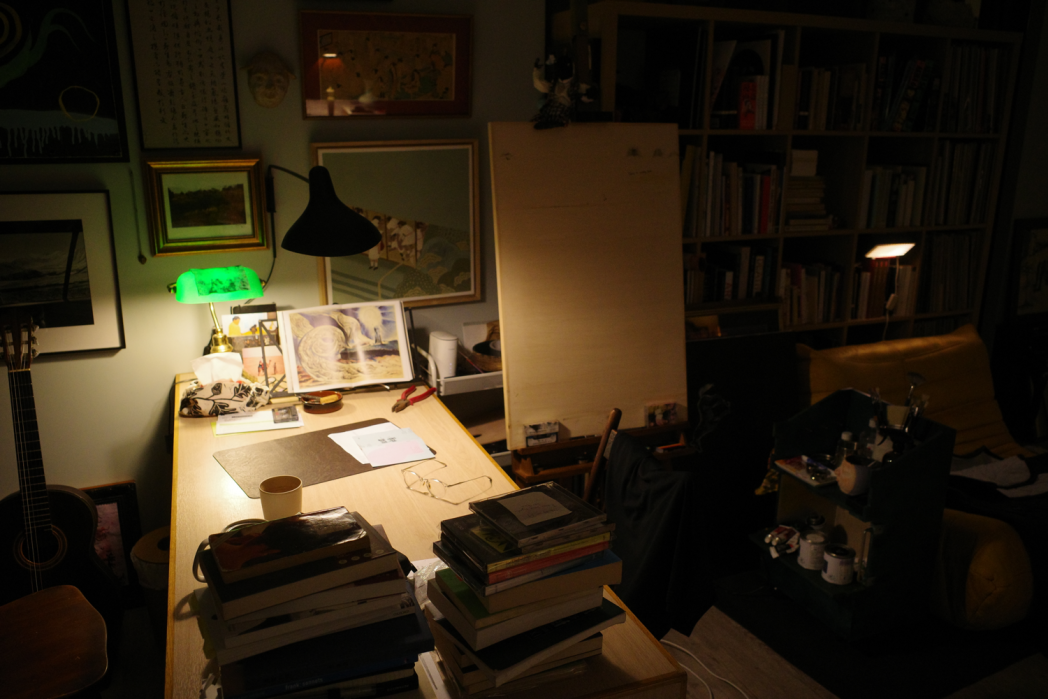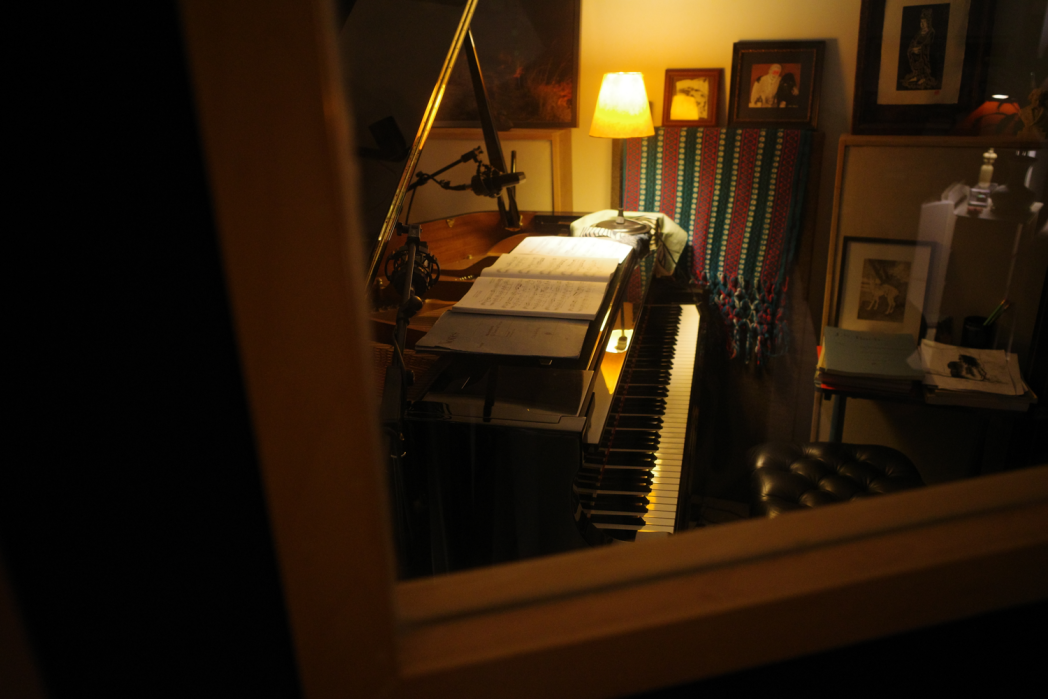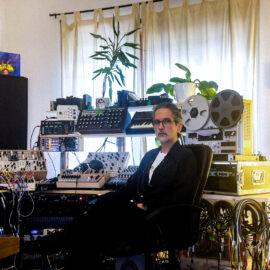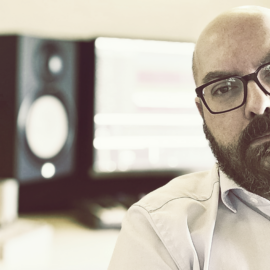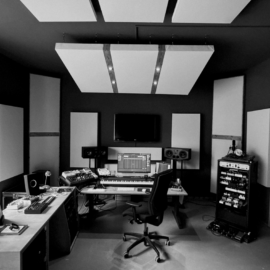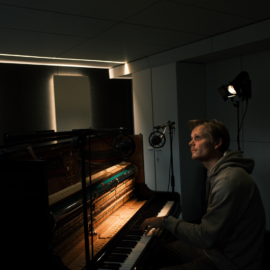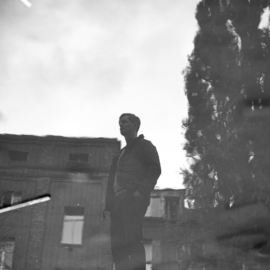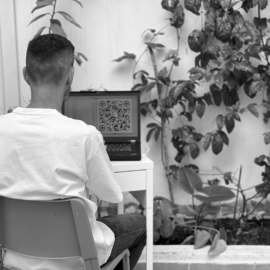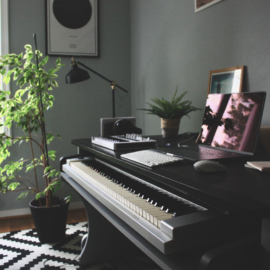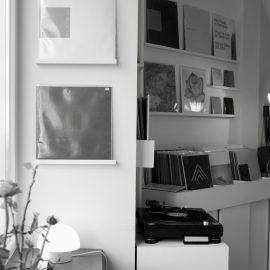Let’s start at the very beginning. Can you tell us how you got involved in composing, and what was your very first piece of gear?
I started to play the piano and violin when I was six. When I was in high school, I sang in the church choir, and played in the orchestra. But I found joy when I started playing in a band, especially trying to write silly tunes with mates. I was studying psychology back in uni and ended up spending too much time in the dormitory. I picked up GarageBand, an interface, a MIDI keyboard and the cheapest condenser mic I’ve found on eBay. And when the VST library wasn’t enough, I bought a Novation Mininova. It was not the best, but the vocoder was actually quite fun to play with. When I returned to Hong Kong, I picked up gigs writing for contemporary dance, theatre and, eventually, films. Without proper academic practice in music, I had to learn to compose and notate music in the most primitive way, by all of listening, trial and error.
How many different studio iterations have you gone through, and what does your final setup look like right now?
I used to cram everything I had inside a small studio, from synthesisers to drumsets, and it even had a recording booth for vocals and strings. But in the end, I never really went in to record as it was too much of a hassle to leave the desk. Now I have rented a larger space and I do sleep in the same space as my studio. The upside is that I could work and play music whenever I want to, but the downside is, I never leave my workspace and rest. The set up I have now is most suited for me, as I feel most comfortable with all my instruments laid out, without the professional acoustic treatments or cabling, I could just pick up anything, anytime and play. My studio has a nice blend of acoustic and electric, from Japanese Taiko and Koto to synths of all kinds. I have accumulated tons of instruments from second-hand websites and adopted abandoned instruments from friends and strangers. I love collecting different sounds, and I often use composing for film soundtracks as an excuse, but we all know the sitar would never appear in any of them.
Tell us about your favourite piece of hardware.
It should be a Yamaha U1, it’s an old upright that I picked up from a lady who bought it for her kids, but sold it to me as the kids have all grown up. Writing or jamming on an acoustic piano is a unique experience, and every time I sit in front of it, it feels inspiring as the vibrations interact with the time of day and the space I am in. The aged U1 also has the most amazing felts, very damped and muffed, the overtones through the felts are magical and contains a very distinctive mood. I find it most easy to start a song on it.
And what about the software that you use for production?
I started with GarageBand and eventually levelled my way to Logic Pro and never left the team. I seldom use VST libraries, but I am a huge fan of the Pianobook community. I am a tech dummy, I am not great with editing and playing with the extensive capabilities of technology. I often treat my logic as a simple four-track recorder, press record and simply play and layer.
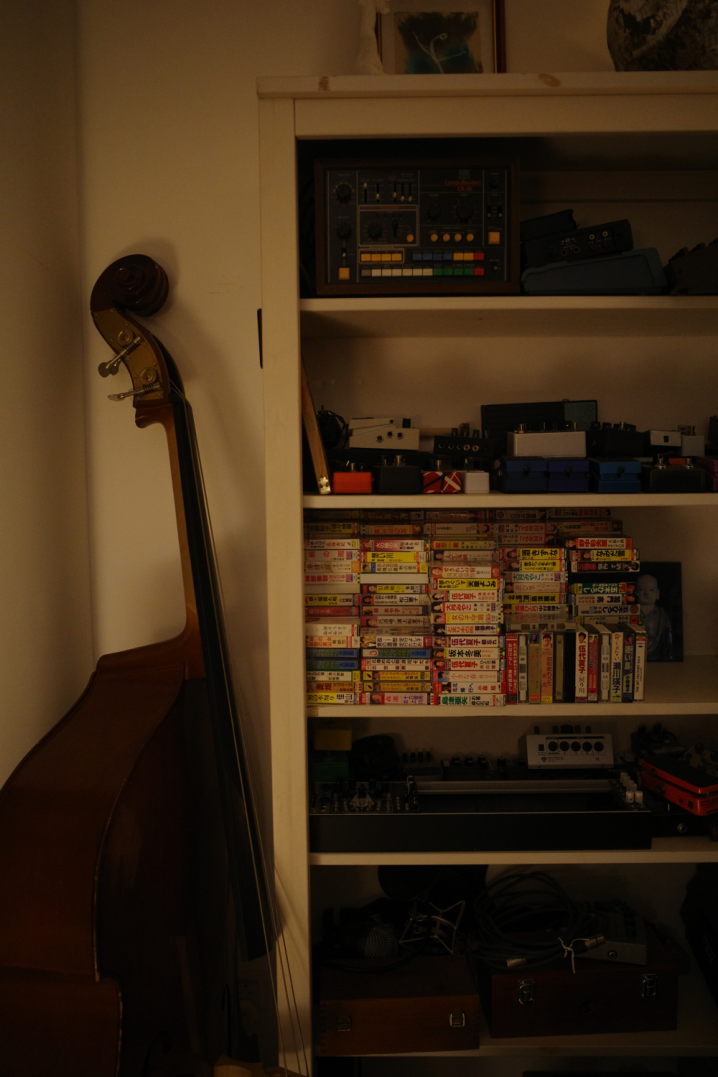
Is there a particular piece of gear that you’re just dying to get your hands on, and do you think one day you’ll have it?
Any Buchla system, of course. The sound it could produce is otherworldly. I think it is unpredictable that draws me, and the Buchla LPG really gives it a very clean and unique tone which I love. Other than that, I would love an Osmose by Expressive E. I tried it in a shop some time ago, and I couldn’t stop thinking of it. The physical modelling and how it reacts to how you play on the keys really changes the outcome.
Can you please share some aspects of sound design in your work?
I do a lot of improvisation performances, and I find them quite different as to improvising alone in the studio. The space where you perform is occupied by the audience and intent, and often, the motifs or structures improvised would lead to something more interesting. The intent for me as a performer would carry more complex motivations and often reflected in the music. I would then try to listen back to the recordings and pick out things that are memorable or motifs that I find interesting with post-performance clarity. I would try to simplify and slowly form structures with them.
Any particular new techniques that you tried out for your new album?
Most of the pieces were location based, I composed and structured the sound according to the location in real life. It was hard to capture a physical space without too much usage of field recording, and adding musical ideas to it would sometimes give it too much emotion and guidance. I had to detach myself, and tried to improvise as much as possible to stay in the moment and not to revise/ modify the piece afterwards in post-production.
What does your live setup look like, and what do you bring with you when you travel for an extensive tour?
I would have my Eurorack, mainly my Mother-32 with a bunch of effect modules, Sheng (a Chinese instrument), Shakuhachi (a Japanese instrument), a Dave Smith Prophet rev2, my voice going through the usual modulations and a four-track cassette deck as to play pre-recorded materials.
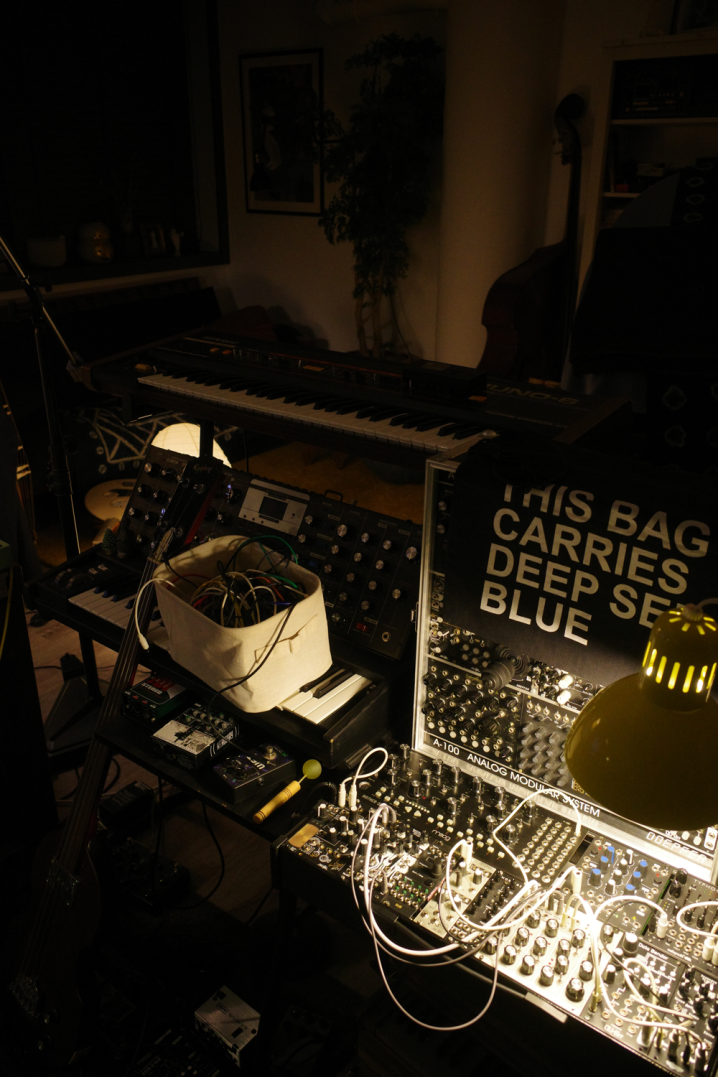
What is the most important environmental aspect of your current workspace, and what would be a particular element that you would improve on?
I need to see outside of my window and the change of time. It affects how I perceive time in the music. I think I tend to work with clearer ideas and forms in daylight, and when the night comes, I am trying to formulate and experiment with the ideas again and again until it works. I could work on the connectivity of my electronic gears and miking of the acoustic instruments. I spend too much time patching and preparing for instruments that I rarely pick up, and I tend to get lazy and never pick them up.
What can you tell us about your overall process of composition? How are the ideas born, where do they mature, and when do they finally see the light?
I like following a piece of text, from poetry, passages in books, or even just a line or two of words. They often act as a great fuel to spark the beginning of an improvisation, which slowly morphs into a structure. This is a question that is too hard for now. I began my musical journey as a singer-songwriter and performed mainly as such for a few years. Later on, I took on scoring works for dance and films, and I had to write with a more classical approach. For years, I had to battle the balance of my own intuition and the rules of classical compositions, as I was insecure about composing in the traditional manner. After a while, I found my way out in improvisation and found liberation in performing with fellow musicians, dancers and all sorts of performing art forms. They all contributed to how I compose nowadays, and I tell you, it is a mess. It is a cluster of ideas, ever-changing, sucked and pulled by all the forms I find interesting at that moment. But I am learning to gather them and simplify them. One thing at a time, I record them down, whether with notes, sound files or text, they will organise themselves into being one day.
After the piece is complete, how do you audition the results? What are your reactions to hearing your music in a different context, setting, or a sound system?
I love listening to demos in my old beat-up car, driving around the city. Whether getting stuck in traffic jams or cruising through the mountains of Hong Kong. The sound system is crap, but it reflects how it feels in the real world. I also like to share my music with good friends, maybe slip in one or two songs while we are drinking, and I would secretly observe their reaction to the music. If they show signs of repulsion or completely ignore the music, I would not take credit for the music.
Do you ever procrastinate? If so, what do you usually find yourself doing during those times?
I do, very much. In my studio, I have many corners for different arts and crafts, clay sculpting, painting, and reading, and lately, I’ve even picked up playing the PS5 Gran Turismo 7. I find procrastination an important process before working on music, it allows me to tidy my thoughts and reflect, also when I gather enough self-loathing for procrastinating too much, I could get back into music with much passion.
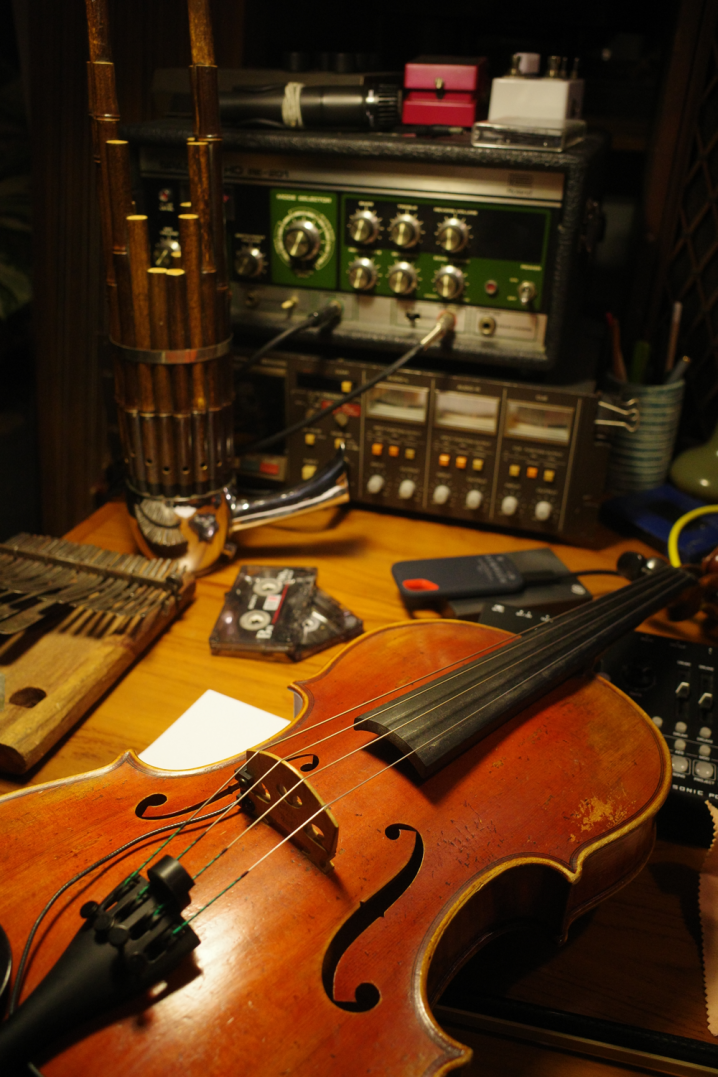
What gets you inspired?
Books, films, other people’s crafts, and most of all, just real-life experiences. All the sounds that exist beyond a composition are also music. The world is truly a canvas where we can identify some patterns and learn to appreciate its chaotic aspects. Sometimes, I try to recreate sounds from the busy street with my instruments and translate them into recordings. But in the end, the raw field recording is far more interesting.
And finally, what are your thoughts on the state of “electronic music” today?
Limitless in terms of what to do, but also seemed to be heading to a point of saturation of what has been done. I think in the end, we only need to compose for ourselves and be happy with the music we do. Innovation and being the first are not a must when it comes to arts and beauty.
